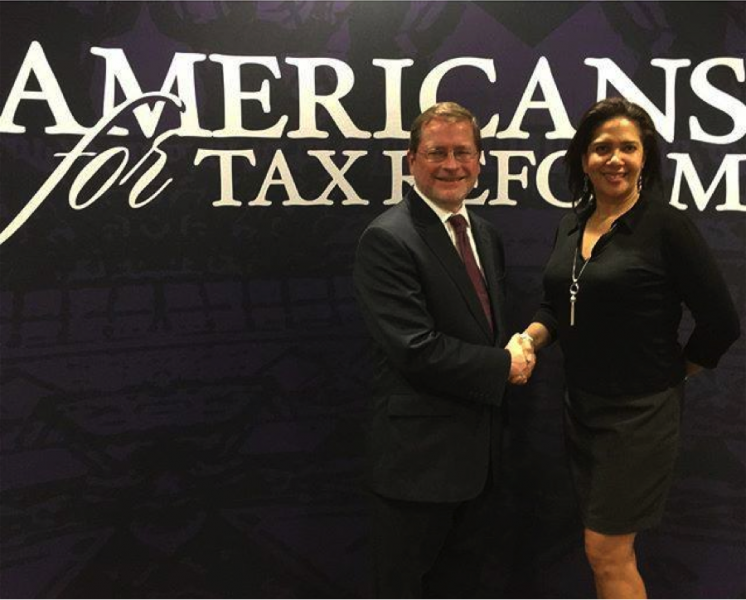
Last week, Americans for Tax Reform hosted small businesses from around the country for a happy hour to discuss “the politics of vaping.” Over 100 members of the Smoke-Free Alternatives Trade Association (SFATA) were in Washington, D.C. meeting with members of Congress in an effort to convince them to curb the implementation of the Food and Drug Administration’s regulatory assault and pending “deeming rule” on the sale and availability of electronic cigarettes and vapor products.

ATR President Grover Norquist with SFATA President Cynthia Cabrera
These tobacco-free technology products have faced an onslaught of tax and regulatory threats throughout the country. This, despite the fact that a recent government-funded study found that e-cigarettes are at least 95 percent less harmful than combustible tobacco cigarettes.
Beyond the policy issues the industry and its consumers face, ATR president Grover Norquist discussed the political implications of threatening the 9 million plus adult vapor product consumers in the context of the 2016 elections.
“I think that the next election, at the presidential level, and a lot of other levels, is going to be determined by the vaping community,” said Grover. “Lifestyle issues win because of the power of the political support behind them,” he said.
The Washington Examiner’s Paul Bedard wrote about the event here. Quoting Grover, Bedard wrote:
“Vaping is not a product. It is a movement. It is a community, it is a political movement in support of a community and it’s changing the country in very good ways,” [Grover] said at a reception during a two-day lobbying effort on Capitol Hill by the association last week.
At the federal level, Congressional Democrats have stood in the way of a minor rule change that would allow the thousands of U.S. small businesses helping combustible cigarette smokers quit to continue doing so. Without action, the pre-market review and regulatory process required of these businesses would be unaffordable and some estimate it would equate to prohibition for 99 percent of the market. It should be noted that the pending regulation does not necessarily regulate the market; it simply requires businesses obtain permission from the FDA to continue to sell products to consumers.
Click here for the most recent map of tax threats in the states.

